Vasileia Ismini Alexaki
TUD Medical Faculty
Lipid metabolism connects meta-inflammation with endocrine dysregulation
COST Action EpiLipidNET and the DIGS-BB are happy to announce the Summer School Lipid Metabolism: from Biochemistry to Clinical Translations. The school will provide insights into the overarching role of lipids in metabolism, health and disease by covering lipid biochemistry, cell biology, biomedical significance and clinical transitions. A number of excellent speakers from all over the world will provide lectures and tutorials on organization of biological membranes, lipid metabolism, lipid-protein interactions, as well as pathologies associated with dysfunctional lipid metabolism in metabolic diseases and cancer.
For PhD students and postdoctoral researchers a dedicated hands-on session will be provided, covering state-of-the-art technologies and methods to study lipidome and epilipidome diversity, lipid trafficking and lipid-protein interactions.
For attending Master students, as an important aspect of career development, we will organize a series of workshops, round-table discussions and “sofa chats” with well-established scientists, clinicians and investigators to discuss everyday aspects of academic career.
We will be able to host up to 30 participants at the different levels of scientific career (10 Master student, 10 PhD students and 10 postdoctoral researchers) on an all-inclusive basis (travel and accommodation will be covered).
To apply for the school use our online application system. You will be asked to provide:
Please note: only trainees from COST members countries, European RTD organizations and NNC countries are eligible to receive the financial support.
COVID-19: Please note that this is a 2G+ event (access only for people who are vaccinated or recovered, additionally you need to do a Corona self test on premise) and be aware of the current COVID-19 regulations for TU Dresden.
Registration is closed
Registration deadline was 25 March 2022
Notification of acceptance
15 April 2022
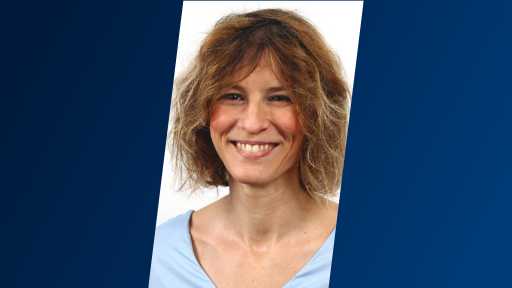
TUD Medical Faculty
Lipid metabolism connects meta-inflammation with endocrine dysregulation
My group studies the interplay between cellular metabolism and endocrine regulation in the context of inflammatory disease. We study cellular metabolic pathways, which determine adrenal gland endocrine function in acute and chronic inflammatory settings. Our work reveals that obesity, a metabolic and low-grade chronic inflammatory state, translates into increased glucocorticoid levels via lipidomic reprograming of the adrenal cortex. In turn, altered endocrine function affects inflammation in the central nervous system. In this context, we also investigate how cholesterol-deriving adrenocortical hormones affect microglia-mediated neuroinflammation and the implicated cellular metabolic regulation.
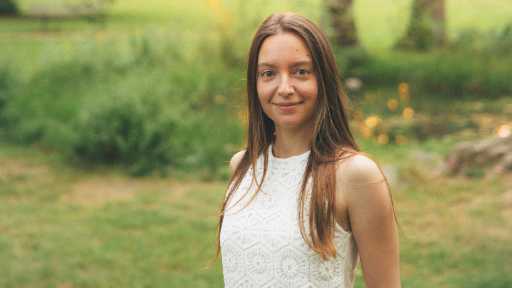
TUD Medical Faculty
Regulated cell death in the adrenal glands and the kidney
After graduating from high school in Greece, I got enrolled in the Biology Department at the University of Patras in 2011. During my last year as a student, I grew interested in the field of environmental toxicology which would remain my field of work until my master studies. Looking forward to working in a laboratory with a medical-oriented application of science, I applied to the DIGS-BB program in Dresden, and I got enrolled in 2017. Since then, I have been practising science in the laboratory of Prof. Andreas Linkermann. My PhD focuses on the different regulated pathways of cell death concerning the adrenal gland and the kidney.
Dr. Marko Brankatschk studied at the TU Dresden, obtained his PhD at the Institute of Molecular Pathology (IMP) in Vienna (supervisor Dr. Dickson Barry) and is leading currently a scientific group at the BIOTEC (TU Dresden). Using Drosophila melanogaster as a model organism Dr. Brankatschk is interested in lipid dependent metabolic activity. One of his main scientific aims is to integrate the scientific fields of lipid research, cell biology and behavior/ecology to investigate the biological relevance of bioactive dietary lipids.
Ünal Coskun studied biology at the University of Osnabrück and received his PhD from the Institute of Biophysics at Saarland University in 2005. From 2005 to 2012, he was a postdoctoral fellow with Kai Simons at the Max Planck Institute of Molecular Cell Biology and Genetics Dresden. Since 2012, he has been an independent research group leader at Paul Langerhans Institute Dresden (PLID). In 2020 he was appointed as Assoc. Professor (W2) for Membrane Biochemistry and Lipid Research at the PLID and the Institute of Clinical Chemistry and Laboratory Medicine of the University Hospital Carl Gustav Carus of the Technical University Dresden. Since July 2021 he is appointed as Full Professor (W3) for Membrane Biochemistry and Lipid Research at the University Hospital Carl Gustav Carus Dresden. His main research focus is to understand how lipid-protein interactions regulate the structure/function of membrane receptors and of lipid binding downstream signaling proteins, such as PI3K, AKT, PLC and PKC.
Maria Fedorova studied Biochemistry at Saint-Petersburg State University, Russia and obtained her PhD at Faculty of Chemistry and Mineralogy, Leipzig University, Germany. She worked as a group leader at the Institute of Bioanalytical Chemistry, Faculty of Chemistry and Mineralogy, at the University of Leipzig. In August 2021 Maria group moved to the Center for Membrane Biochemistry and Lipid Research, TU Dresden. Her research is focused on development and implementation of lipidomics and bioinformatics solutions to address complexity and plasticity of lipid metabolism in variety of biological systems. In particular, Maria aims for a deeper understanding of pathophysiology of metabolic and inflammatory disorders, including obesity, insulin resistance, type II diabetes and cardiovascular disorders.
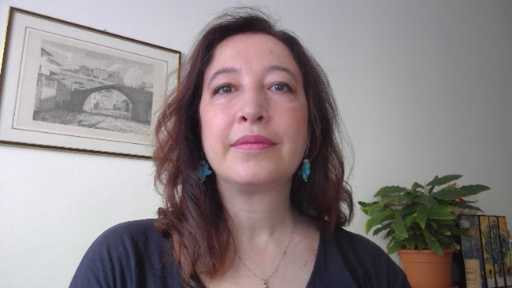
University of Perugia, Italy
Developing tools for lipid metabolism analysis: challenges and solutions
Tutorial Day 5: Data integration strategies in biomedical research
Laura Goracci is Associate Professor at the University of Perugia (Italy). In 2004, she received her PhD in Chemical Sciences (University of Perugia), and her PhD in Organic Chemistry (University of Bordeaux 1). From 2008 to 2011, she worked for the MIA s.r.l. company, running data analysis and chemometrics as principal investigator. Since then, she has started a fruitful collaboration with Molecular Discovery Ltd (UK), strengthening her skills on innovative cheminformatic computational procedures. In 2012, she moved back to the University of Perugia, being the PI of project on drug induced phospholipidosis (with Hoffmann-La Roche as external partner). In 2015, she was invited researcher at the University of Geneva for three months. She is the PI of the scientific team behind the Lipostar software for lipidomics. Author of about 80 publications book chapters, she is currently MC member and Working Group Leader for the EpiLipidNET COST Action.
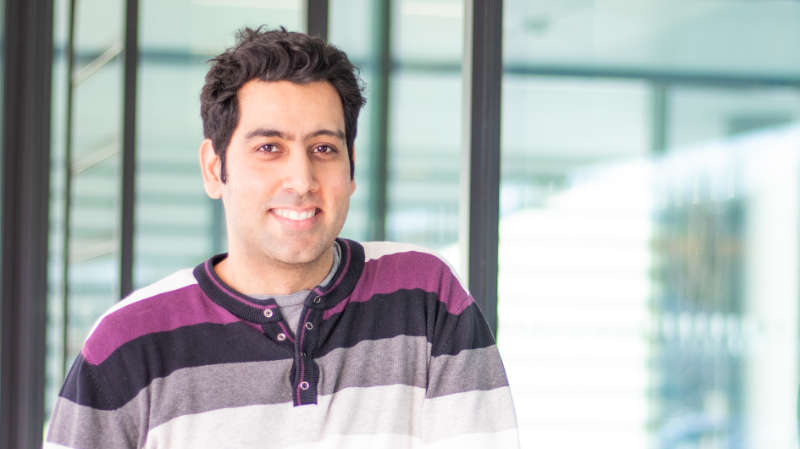
TUD B CUBE
Membrane and Motors: Novel platform to study intracellular trafficking
Prof. Dr. med. Jochen Hampe is head of the Medical Clinic 1 at the University Hospital Carl Gustav Carus and holds the professorship for Internal Medicine and Gastroenterology at the Technical University of Dresden. After completing his medical studies at the Charité, Humboldt University of Berlin, he worked as an assistant physician at the Charité and Kiel University Hospital from 1997 onwards. For the latter he became a senior physician in 2007. In the meantime he conducted postdoctoral research on the genetics of inflammatory bowel diseases in San Diego, California. In 2004, he was awarded the "Theodor-Frerichs-Preis" of the German Society for Internal Medicine. In 2013 he became head of Division of Gastroenterology and Hepatology at Medical Clinic 1, Carl Gustav Carus University Hospital in Dresden. Since 2019, he has been the scientific spokesperson of the Else Kröner Fresenius Center for Digital Health (EKFZ).
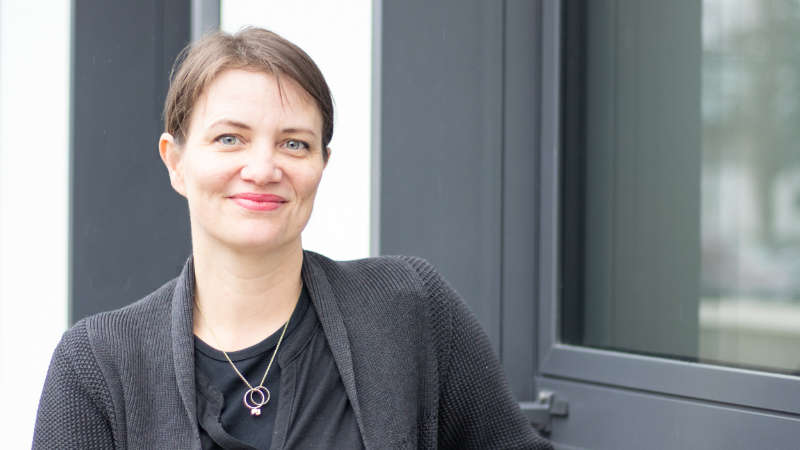
Mildred Scheel Early Career Center, TUD Medical Campus
How now to lie with charts – a tutorial for better data figures
Studies in biology and art. PhD in molecular/RNA biology. Scientist specialised in data visualisation at university hospital Dresden. Trainer and consultant for life science data visualisation. Lecturer for bioinformatics Berlin Hochschule für Technik.
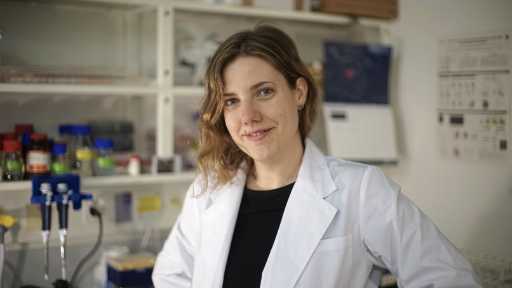
University of Geneva & University of the Basque Country (UPV/EHU)
Sphingolipids in Cell and Membrane Biology
Noemi Jiménez-Rojo graduated in Biochemistry at the University of the Basque Country and got her PhD degree working in the laboratory of Prof. Alicia Alonso at the Biophysics Institute in Bilbao, Spain, where she investigated fundamental aspects of sphingolipid biology applying biophysical approaches in reconstituted membrane systems. For her postdoc, Noemi joined the laboratory of Prof. Howard Riezman at the University of Geneva, Switzerland, where she has been focused on applying lipidomic analysis to understand how membrane lipid homeostasis is maintained and regulated in mammalian cells. She aims to better understand lipid diversity and to uncover new lipid functions using multidisciplinary approaches that combine mass spectrometry with membrane biophysics and cell biology and she is particularly interested on how cells modulate their membrane lipid composition and biophysical properties to regulate intracellular trafficking pathways.
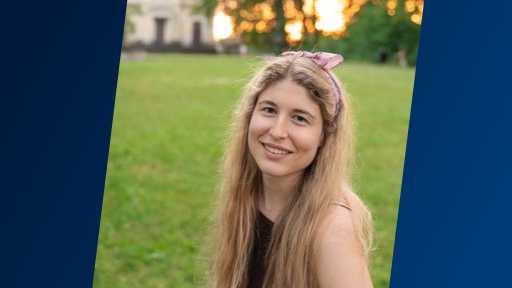
TUD Medical Faculty
Innate immune training of Granulopoiesis: A novel tool in cancer immunotherapy
After earning my Bachelor degree in Biology from the University of Crete in Greece and my Masters at the Medical faculty of the same university, I moved to Dresden to further pursue my passion for research. I joined Prof. Chavakis lab as a PhD student in 2018, where I got the opportunity to be a part of many outstanding studies. My research interest is mostly focused on the inflammatory regulation of hematopoiesis and innate immune training. Four years after, ready to complete my “PhD journey”, I can assure you it was the most educational and enlightening journey of my life in all levels.
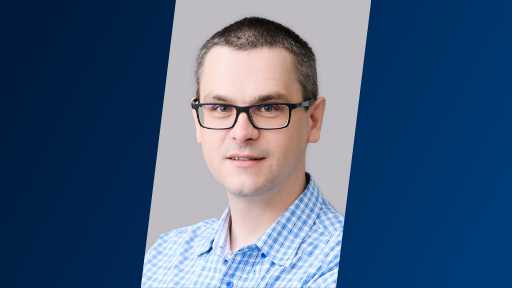
Institute of Physiology, Czech Academy of Sciences, Czech Republic
Metabolic tracer analysis in mice – lipid perspective
Dr. Kuda is the head of Laboratory of Metabolism of Bioactive Lipids. The aim of the lab is to use metabolomics, lipidomics and metabolic tracer analysis to explain how metabolites influence organ functions, immune functions, nutrient sensing, inter-organ communication, and liver and adipose tissue physiology. Currently, the lab is exploring projects focused on type 2 diabetes complications, intrinsic metabolism of adipose tissue, heart failure, various types of cancer, and cachexia within the fields of biology, chemistry, and bioinformatics.
André Nadler studied chemistry at the university of Göttingen. After doing a PhD in the area of peptide and nucleic acid chemistry under the guidance of Ulf Diederichsen, he joined the laboratory of Carsten Schulz at EMBL Heidelberg. During this time he took an interest in lipid biology, primarily the signalling functions of lipids. Since 2014, he is a research group leader at the MPI of Molecular Cell Biology and Genetics in Dresden. His main research interests lie the development of approaches for performing quantitative biochemistry in live cell experiments, studying lipid localisation and transport on subcellular scales and unravelling the biological roles of lipid asymmetry. His laboratory combines chemists and cell biologists, both developing new probes and answering biological questions.
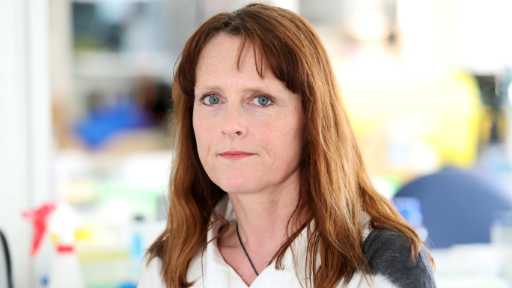
School of Medicine, Cardiff University, UK
Oxylipin removal as a mechanism to dampen signaling in inflammation
Research in our group is focused on using mass spectrometry for discovery and characterization of lipid mediators of inflammation, and delineating pathways that control their metabolism. We have studied how lipids generated by circulating vascular cells regulate innate immunity, wound healing and thrombosis. We particularly focused on around large numbers of lipids termed enzymatically-oxidized phospholipids (eoxPL) made by platelets, neutrophils, monocytes and eosinophils. They were structurally characterized in our group, and then analyzed in vitro and in vivo in human clinical samples and mouse models, for their biological and pathophysiological actions. With collaborators, we showed that they are essential for normal blood clotting, and conversely are elevated in thrombotic disease. We found that eoxPL are an essential part of the healthy innate immune system, however when inappropriately generated in the blood stream or in excess, they contribute to vascular inflammation.
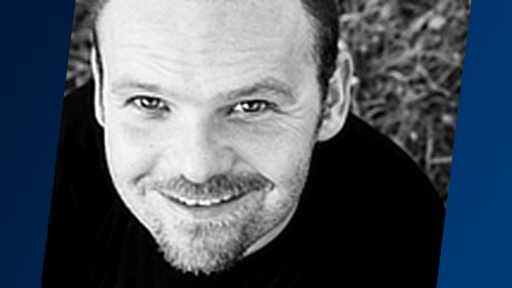
Jožef Stefan Institute, Ljubljana, Slovenia
Lipid droplets – managing fat to fight stress
Toni Petan received his PhD in Biochemistry and Molecular Biology from the University of Ljubljana, Slovenia, working on phospholipase A2 protein engineering and membrane enzymology. Following his postdoc studies in cancer cell biology at Harvard Medical School, he returned to Slovenia and formed a research group at Jožef Stefan Institute, fusing his love for lipids with cancer research. His work is now focused on a fascinating, long-neglected organelle, the lipid droplet, and in particular its roles in fatty acid trafficking and signalling. Some of the research topics his group is currently investigating are 1) the roles of lipid droplets in the production of inflammatory lipid mediators, 2) the interplay between lipid droplets and autophagy and 3) lipid droplets as managers of membrane homeostasis and ferroptosis. He is also an associate professor at Jožef Stefan International Postgraduate School and enjoys working with students.
Master students workshop: Introduction to the biophysical characterization of synthetic membranes
James Saenz is a group leader at the B CUBE Center for Molecular Bioengineering at the TU Dresden. HIs career has taken several turns, which have been motivated by a passion for understanding how life works and how it started. James pursued his PhD at MIT and the Woods Hole Oceanographic Institution in the field of chemical oceanography where he was first introduced to the application of lipids as molecular fossils to reconstruct the history of life. James moved to Dresden for his postdoc in the lab of Professor Kai Simons at the MPI-CBG to explore what preceded sterols in the evolution of membrane organization. Currently James’ lab is focused on understanding the design principles of living membranes. This work is motivated by three questions: How does lipidome size and composition determine membrane function, what are the principles underlying the responsiveness of cellular lipidomes, and how did lipids contribute to the origin of life?
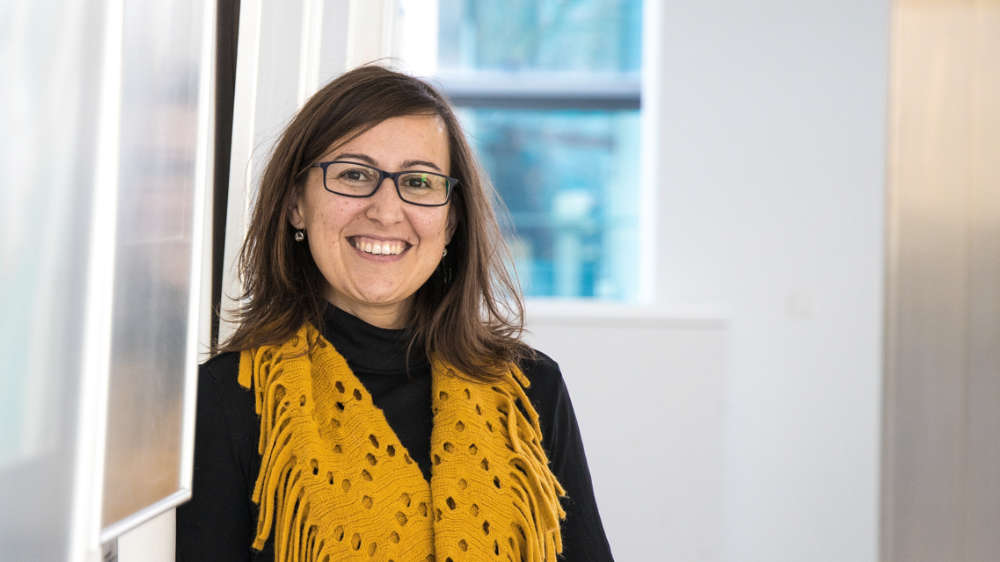
DIGS-BB
Introduction to the DIGS-BB
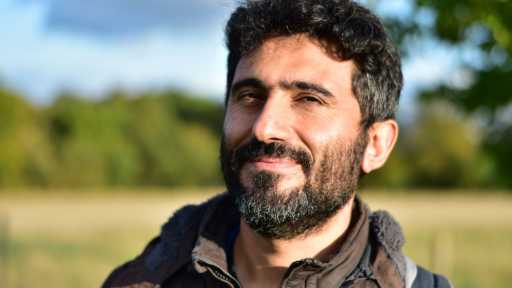
Karolinska Institutet, Stockholm, Sweden
Understanding biomembranes with biophysical tools
Erdinc Sezgin studied Genetics and Bioengineering at Yeditepe University, Istanbul, Turkey. He performed his PhD with Prof Petra Schwille at the International Max Planck Research School in Dresden on membrane biophysics. After a short postdoc with Kai Simons at MPI-CBG, he moved to University of Oxford with EMBO and Marie Skłodowska Curie Fellowships to study biophysics of immune signalling. In 2020, he became a SciLifeLab fellow and group leader in Karolinska Institutet Sweden. His lab (CSI:Nano Lab) develops and applies advanced imaging and synthetic biology approaches to reveal the biophysical principles underlying cellular processes with a focus on membrane-related phenomena.
Andrej Shevchenko is organic chemist by education (Leningrad State University, Diploma w. Distinction) and received his doctorate from Leningrad Institute of Technology in the field of biological mass spectrometry. After post-doctoral work in EMBL, in 2001 he joined MPI of Molecular Cell Biology and Genetics in Dresden as Group Leader. His main scientific interest is absolute (molar) quantification of lipidomes and proteomes of complex biological systems to understand the chemical rationale behind their molecular organization in the disease state and physiological norm. In the field of lipidomics, his group is developing quantitative shotgun lipidomics by ultra-high resolution mass spectrometry and its application to spatial-specific characterization of tissues. During his scientific carrier Dr.Shevchenko published more than 300 articles and has h-index 113 (GS).
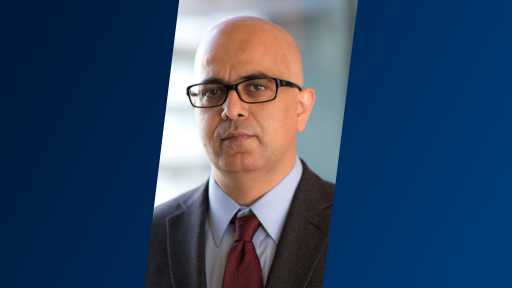
Albert Einstein College of Medicine, New York City, NY, USA
Integrative regulation of lipid metabolism via autophagy
Rajat obtained his medical degrees from Medical College, Calcutta and the Postgraduate Institute in Chandigarh, following which he moved to the US to pursue his postdoctoral work at the Albert Einstein College of Medicine, NY, USA. In 2010, he joined Einstein as an Assistant Professor and rose through the ranks to become full Professor in 2021. Rajat’s postdoctoral work identified the process of lipophagy, i.e., autophagic degradation of lipid droplets, and revealed roles for autophagy in adipocyte differentiation. Since then, his interests lie in understanding how autophagy in peripheral tissues and the CNS controls lipid metabolism in a time-, diet-, and age-dependent manner. The Singh lab is also interested in understanding how age-related autophagy failure causes metabolic disturbances, and whether a novel twice-a-day feeding intervention, developed in his lab, will prevent metabolic aging in mice and humans.

TUD Medical Faculty
Role of lipid mediators in non-alcoholic fatty liver disease
Pallavi Subramanian is a senior scientist at the Institute for Clinical Chemistry and Laboratory Medicine, at the lab of Prof. Chavakis. The research mainly focuses on studying molecular mechanisms involved in liver fibrosis development during non-alcoholic fatty liver disease.
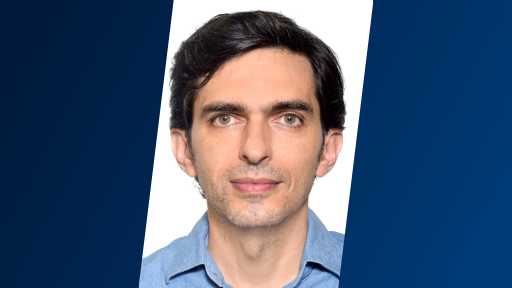
Life Sciences Institute, National University of Singapore
Lipidomics in human cohorts
Federico Torta is a Research Assistant Professor at the Singapore Lipidomics Incubator (SLING), Department of Biochemistry, Yong Loo Lin School of Medicine, National University of Singapore. He is also co-director of the lipidomics unit of SingMass, the Singapore National Laboratory for Mass Spectrometry. He received his Ph.D. degree in Biochemistry from the University of Parma, Italy. His expertise includes sphingolipidomics, high-throughput technologies for the assessment of lipidomes in large human cohorts and the study of protein-lipid complexes.
The program contained
 COST
COST
COST (European Cooperation in Science and Technology) is a funding agency for research and innovation networks. Our Actions help connect research initiatives across Europe and enable scientists to grow their ideas by sharing them with their peers. This boosts their research, career and innovation.
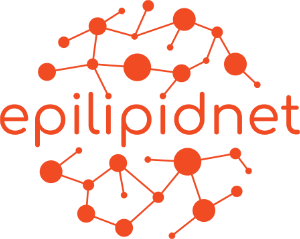 EpiLipidNET
EpiLipidNET
 Sächsisches Staatsministerium für Wissenschaft, Kultur und Tourismus
Sächsisches Staatsministerium für Wissenschaft, Kultur und Tourismus
This Summer School is supported by Sächsisches Staatsministerium für Wissenschaft, Kultur und Tourismus (Saxon State Ministry for Science, Culture and Tourism)
 Technische Universität Dresden
Technische Universität Dresden